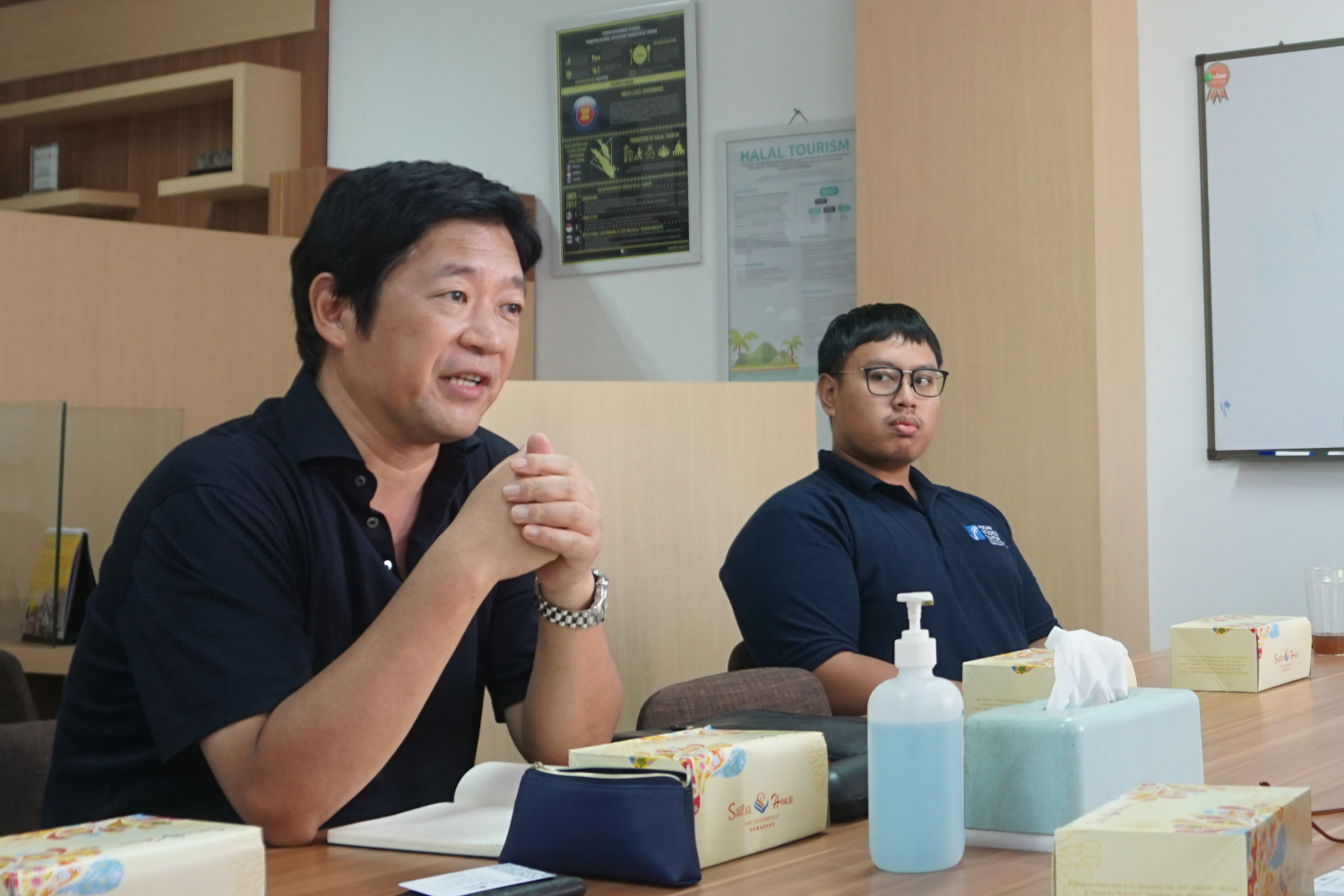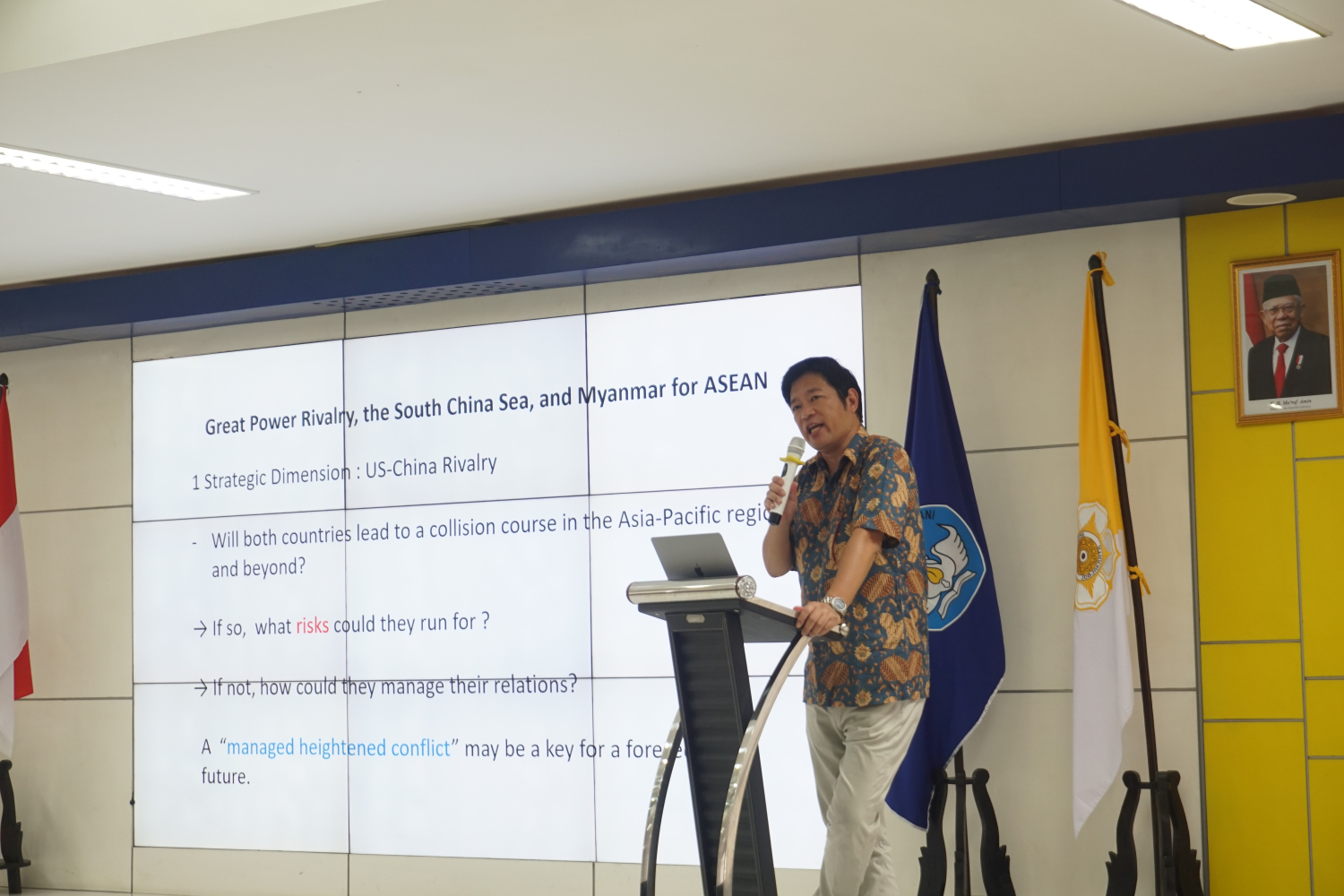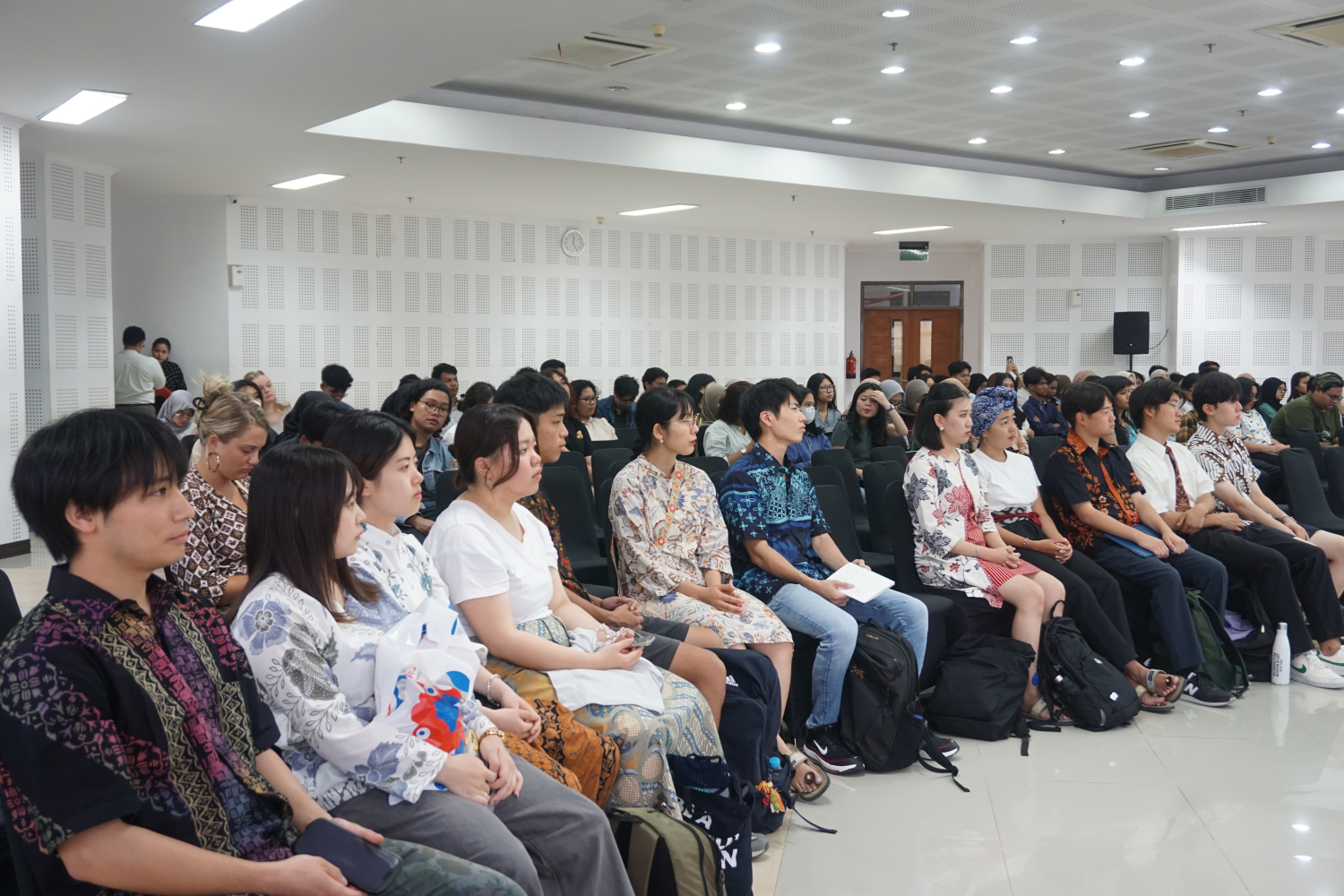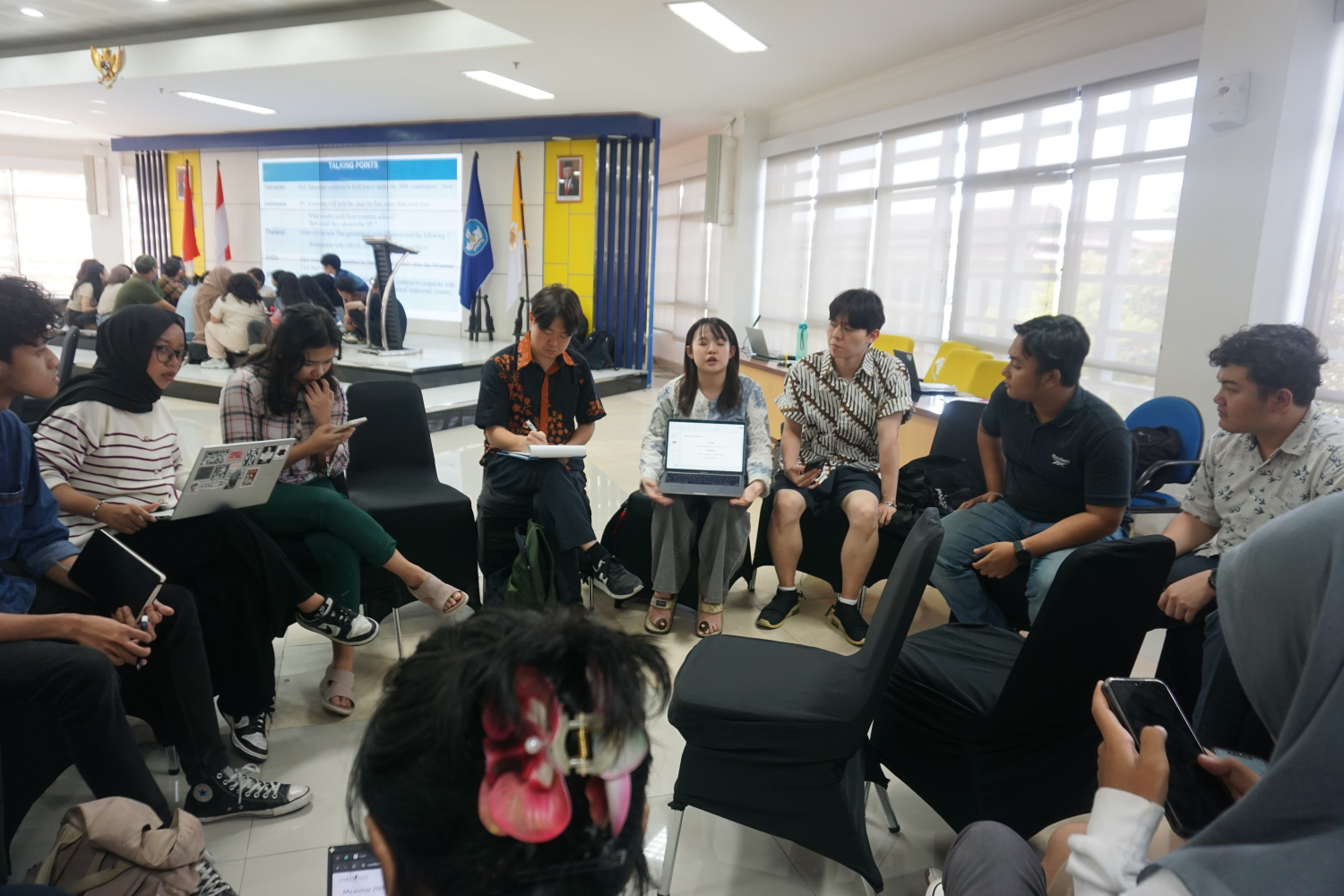ASEAN Studies Center welcomed a visitation from Prof. Kimikazu Shigemasa from Kwansei Gakuin University, Japan on 11-12 September 2024. The discussions during the visit revolved around significant topics, including developments in the South China Sea, relations between Japan and Indonesia, ASEAN dynamics, and opportunities for collaboration between the two universities.

On the second day, Professor Shigemasa introduced a group of students accompanying him to participate in interactive sessions within the “Security Cooperation in ASEAN” and “Kerjasama Keamanan di ASEAN” classes. These sessions, lasting three hours, were held in the Faculty Auditorium and structured into three segments. Professor Shigemasa initiated the program with a presentation on Indo-Pacific developments, emphasizing the situation in the South China Sea. This was followed by a presentation from the Kwansei Gakuin University students, titled “Building Our Heart-to-Heart Society Beyond Generations,” focusing on themes such as fostering a caring global society, empowering youth, and enhancing connectivity.

The student presentation was a preparatory exercise for the “ASEAN Pavilion Osaka 2025 EXPO,” scheduled to take place at the ASEAN Secretariat later that week. After this, the program shifted to a discussion on ASEAN and Myanmar’s multiple crises. Students were divided into five groups, each representing key actors relevant to the Myanmar situation: (1) The Tatmadaw, (2) the 5-Point Consensus (5PC) key members (Indonesia, Malaysia, and Singapore), (3) Mekong member states, particularly Thailand, (4) Ethnic Armed Organizations (EAOs), and (5) the National League for Democracy (NLD).

Following a short break, the discussions resumed with a focus on “Issues in the South China Sea,” exploring perspectives from major Indo-Pacific stakeholders, including (1) claimant states such as the Philippines and Vietnam, (2) China, (3) the United States, and (4) Indonesia. The dialogue delved into Indonesia’s strategic options in regional security: asserting leadership within ASEAN, advancing its claims in the Natuna Islands, or adopting a neutral stance. The discussions were dynamic and insightful, with students engaging enthusiastically in addressing these critical issues.

